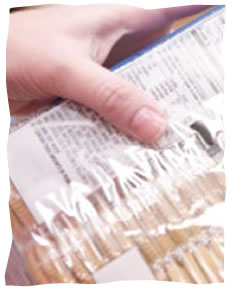Dear Rabbi,
I am so embarrassed; I don’t know what to say.
Last week, I bought a tomato sauce that I thought was kosher. I always buy this brand, but this time it seems I chose a different flavor than usual. After cooking with it and feeding my family, I read the ingredients, and to my horror, the sauce wasn’t kosher!
I will do whatever I need to make my kitchen kosher again. I know that can be fixed.
But what devastates me is that I ate it and fed it to my family. Is there anything I can do about it now?
Answer:
You have a rare opportunity before you, one that even the holiest people never have. You can transform that
non-kosher food into something positive. Here’s how.
While every food has its nutritional value, certain foods have the capacity to provide us with spiritual nutrition too. This is kosher eating. The Torah allows us to eat certain foods, not because they are healthy for our body, but because they are healthy for our soul.
On the other hand, non-kosher foods block the connection between body and soul, deaden our perception of holiness and desensitize us from the world of spirit.
But there is a way that non-kosher food can elevate you. This can happen when the eating of non-kosher food itself stirs you toward spiritual growth. When you regret what you have done and resolve to be extra-cautious in the future, and when you commit to being more careful in your general observance of the dietary laws, reviewing the relevant laws, then you have made the non-kosher food a means for growth.
Since returning to G‑d needs some action, resolve also to place some coins in a charity box (preferably affixed to the wall of the kitchen) before cooking, and refrain from some of your favorite foods for a few days—an exercise that helps one gain mastery over one’s desire for physical pleasures. These actions and intentions will serve to transform what was a fall in spiritual observance—even an unintentional one—into a step towards a higher spiritual plane.
This creates an amazing turnaround. The item you ate actually made you more spiritual. The sin had the same impact usually reserved for the observance of a positive commandment: it made you closer to G‑d.
This is the law of transformation. A dispute, when resolved, makes friends closer. An argument, when handled correctly, makes a marriage deeper. A mistake, when seen as a learning tool, makes you smarter. And a piece of ham, when you regret eating it, makes you more kosher.
You should never deliberately start an argument, and you should never choose to eat non-kosher food. But if it already happened, don’t feel down. Make the turnaround and elevate it.
See
How to Change the Past from the selection on the
Jewish Take on Repentance (“teshuvah”).



No hay comentarios:
Publicar un comentario